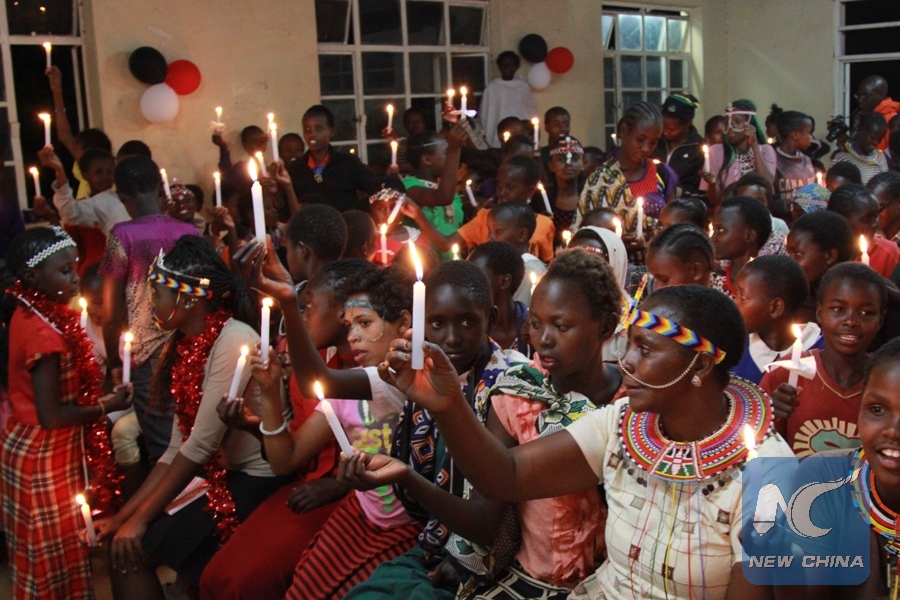
Samburu girls light candles to signify their determination to continue with education during the graduation of Alternative Rite Passage (ARP) at Wamba village in Samburu, Kenya, Dec. 6, 2016. The ARP ceremony is aimed at ending Female Genital Mutilation (FGM), a cultural practice among the Maasai community of Kenya. (Xinhua/Charles Onyango)
UNITED NATIONS, Feb. 6 (Xinhua) -- Three executive directors of the UN agencies on Wednesday called for actions to eliminate female genital mutilation by 2030 on the International Day of Zero Tolerance for Female Genital Mutilation.
At least 200 million girls and women alive today have had their genitals mutilated -- suffering one of the most inhuman acts of gender-based violence in the world, said in a joint statement by Henrietta Fore, the United Nations International Children's Emergency Fund (UNICEF) executive director, Natalia Kanem, the United Nations Population Fund (UNFPA) executive director and Phumzile Mlambo-Ngcuka, UN Women executive director.
Female genital mutilation leads to long-term physical, psychological and social consequences. It violates women's rights to sexual and reproductive health, physical integrity, non-discrimination and freedom from cruel or degrading treatment, said three executive directors.
"It is also a violation of medical ethics: Female genital mutilation is never safe, no matter who carries it out or how clean the venue is," they added.
Female genital mutilation is a form of gender-based violence, and in order to end it, the root causes of gender inequality have to be tackled, and the international community need to work for women's social and economic empowerment, they said.
In 2015, world leaders overwhelmingly backed the elimination of female genital mutilation as one of the targets in the 2030 Agenda for Sustainable Development. "And we must act now to translate that political commitment into action," said the statement.
"At the national level, we need new policies and legislation protecting the rights of girls and women to live free from violence and discrimination. Governments in countries where female genital mutilation is prevalent should also develop national action plans to end the practice," they said, adding that their plans must include budget lines dedicated to comprehensive sexual and reproductive health, education, social welfare and legal services.
The International Day of Zero Tolerance for Female Genital Mutilation is a UN-sponsored annual awareness day to eradicate the practice. To mark the international day, UNFPA and UNICEF organized a photography exhibition at the visitor's lobby at the UN Headquarters in New York.

